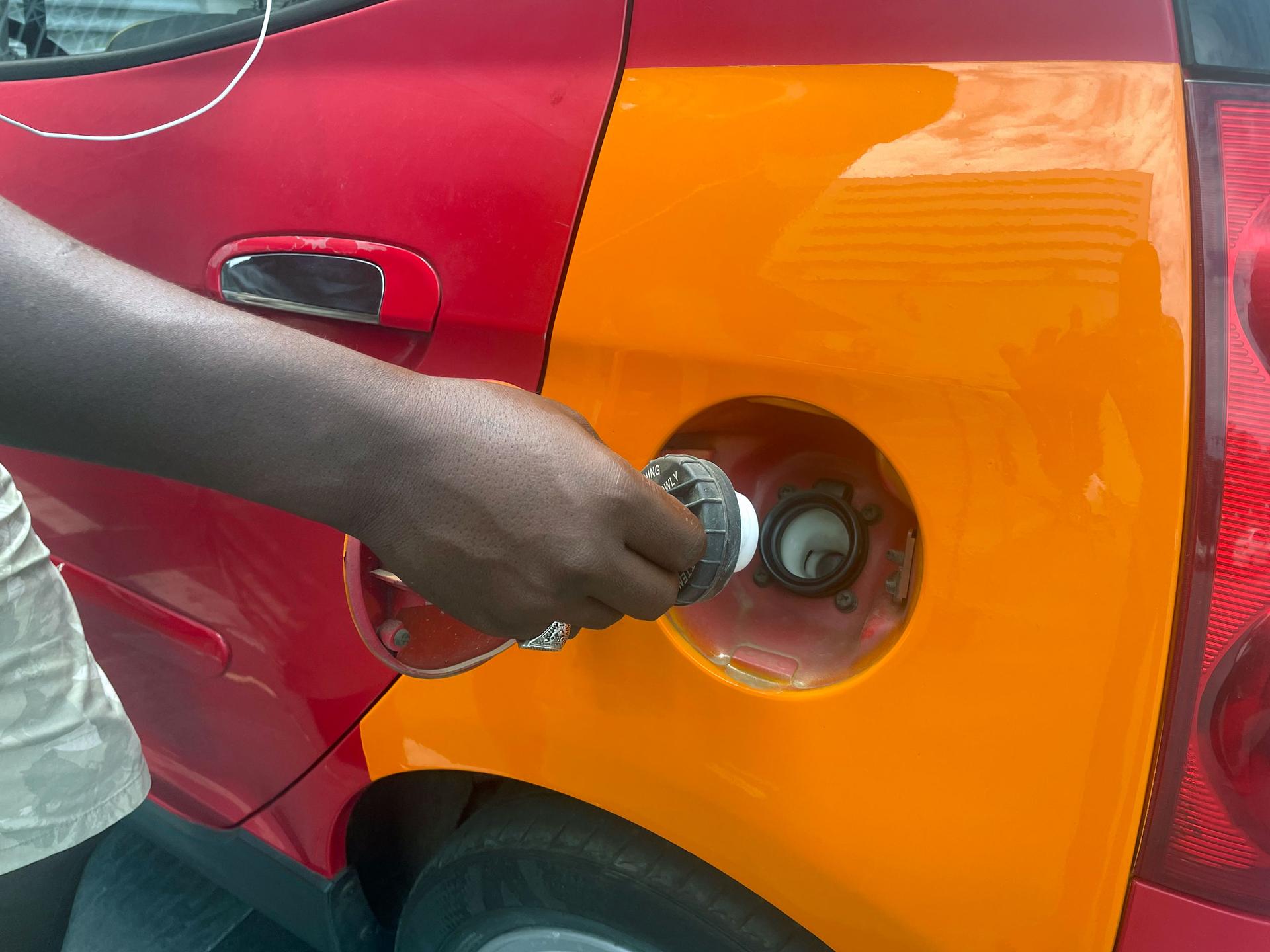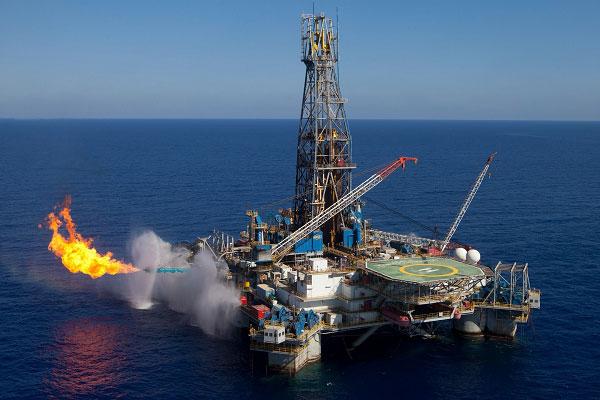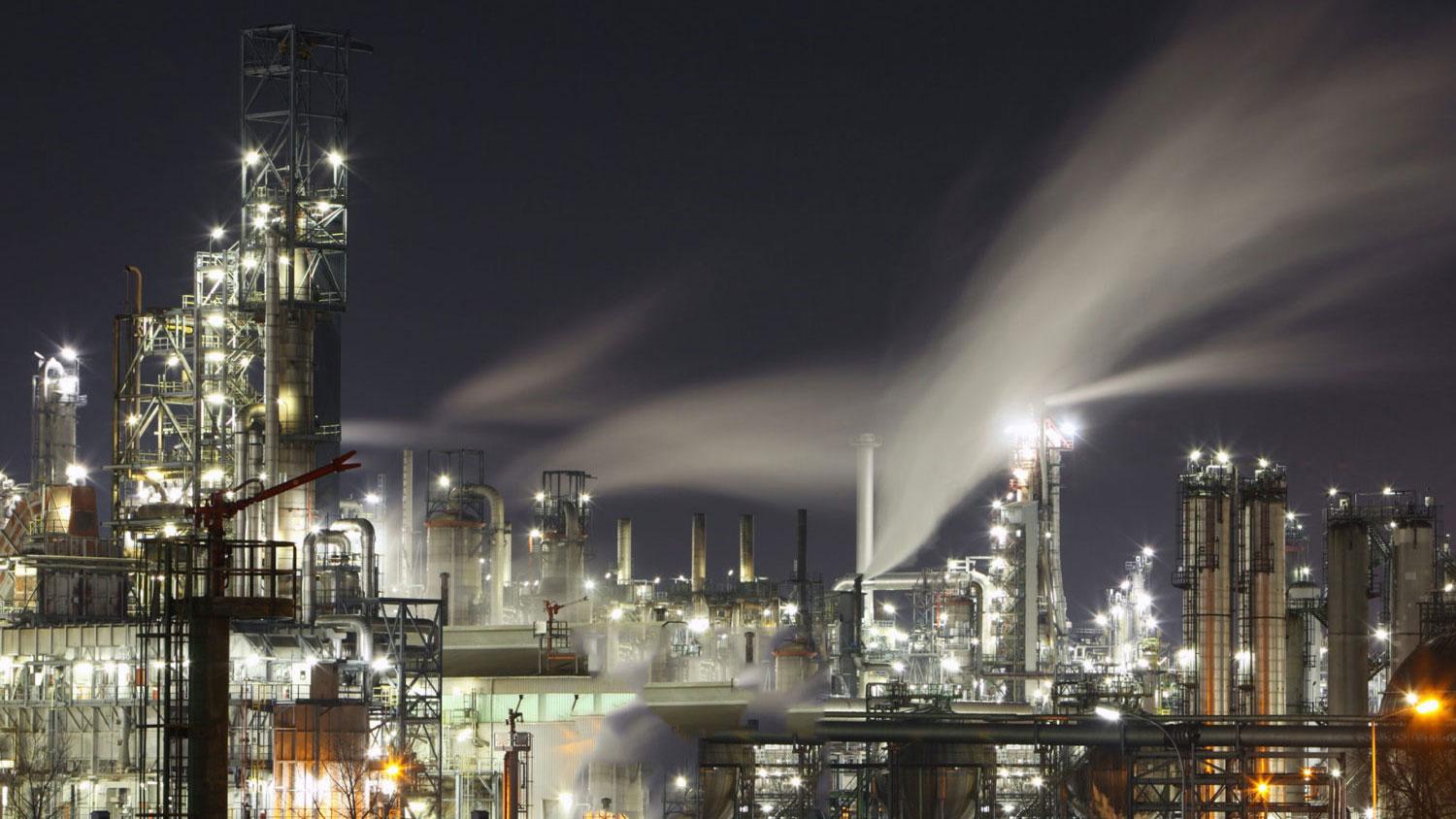As global oil prices surge, some African countries may see a silver lining
On a recent day at a barbershop in Ghana’s capital, Accra, a group of young men argued about the impact of rising fuel prices on the Ghanaian economy.
Twenty-two-year-old barber Daniel Fosu said his customers have dwindled by more than half since fuel prices began skyrocketing in January.
“Most of my customers now spend more than twice the amount we charge for the haircut [$4] on transport [$9]. Because of that, they have stopped coming. They say it doesn’t make economic sense.”

“Most of my customers now spend more than twice the amount we charge for the haircut [$4] on transport [$9]. Because of that, they have stopped coming. They say it doesn’t make economic sense,” Fosu said as he moved a razor through a customer’s hair.
Filling up at the pump costs about $6.25 a gallon in Ghana, now that fuel prices have shot up by more than 20% since January.
Meanwhile, the minimum wage still averages at about $2 per day.
And while surging oil prices hurt everyday consumers in Africa, some oil-producing countries have seen higher budget revenues which, in turn, have boosted investment spending in other areas.
But the situation is hitting the pockets of people like Fosu very hard.
“Life has become really unbearable. Where am I going to get the money to pay for rent and my utility bills if things continue the way they are?”

A windfall for Africa’s oil-producing countries
In 2020, oil demand plunged when pandemic lockdowns led the price to fall below zero for the first time in history.
But those prices have since risen sharply to more than $100 per barrel.
Russia’s invasion into Ukraine in February has also contributed to the crude oil market shake-up.
Before the crisis, Ghana had been grappling with its weakening local currency — called the cedi — against the US dollar, which limited the country’s capacity to purchase fuel imports. The country’s high debt also made it hard to borrow from the international capital market.
Related: With soaring debt, Ghana considers controversial mobile money tax
But Ghana currently produces some 190,000 barrels of crude oil a day — and most of it gets exported.
Total petroleum revenues from Ghana’s three oil fields increased by 17.5% from $666 million in 2020 to $783 million in 2021, due to higher crude oil prices, according to Ghana’s Public Interest Accountability Committee (PIAC).
The PIAC 2021 annual report said that this was despite a 17.7% decline in annual crude oil production from 66,926,806 barrels in 2020 to 55,050,391 barrels in 2021.
“If you look at Ghana’s case, where they did their budget on the basis of about $60 a barrel, now we are talking $100 or so a barrel, then the revenue is actually going to significantly improve.”

“If you look at Ghana’s case, where they did their budget on the basis of about $60 a barrel, now we are talking $100 or so a barrel, then the revenue is actually going to significantly improve,” said Theo Acheampong, an energy economist at the University of Aberdeen.
The current global oil price surge looks good for governments in places like Ghana, he said, but could worsen inflation in countries like Botswana, Guinea Bissau, Mozambique and South Africa, where consumers tend to spend more overall on transportation, food and beverages, as measured by the consumer price index (CPI).
“Surging oil prices, there are winners and there will be losers. The winners will be the commodity-exporting ones, the net exporters. And the losers will be the net importers,” Acheampong said.
Empty shopping baskets
Ghana is also dealing with high inflation due to price hikes for fuel, goods and services.
On a recent day at a market in Accra’s central business district, resident Rose Lawson carried a near-empty basket while shopping for groceries.
Food prices have more than doubled since Lawson visited the same market two weeks ago.
She attributes this to fuel price hikes.
“The traders tell us that they cannot bear the costs. They have to pass on the costs to us. And they think we have the money, but we don’t because everything is rising, except salaries,” Lawson said.
Ghana’s Peasant Farmers Association said food supplies will diminish if soaring transportation costs are not addressed.
The United Nations has warned that if food prices continue to rise, by June, hunger and malnutrition will worsen in West Africa, leaving some 38 million people extremely vulnerable.
Related: This Ghanaian chef quit his job to fight hunger in vulnerable African communities
Lawson said she’s had to adjust her eating habits at home.
“We have to reduce the intake of meat and now stick to cheaper alternatives — vegetables and other forms of protein, like beans, because that’s all we can get. It’s really been difficult.”

“We have to reduce the intake of meat and now stick to cheaper alternatives — vegetables and other forms of protein, like beans, because that’s all we can get. It’s really been difficult,” she said.
Oil exploration on the rise
While surging oil prices hurt consumers like Lawson, it also means good business for oil-producing countries in Africa.
Soaring oil prices are driving the growth of oil exploration in some parts of Africa, where high oil prices have motivated major oil companies to increase their presence.
In 2021, Ghana’s Ministry of Energy began drilling a well in the Voltaian Basin as part of an exploratory study.
Italy’s multinational oil and gas company Eni recently discovered oil in Ghana. And the country’s Energy Ministry has invited tenders to increase oil and gas reserves. They are currently in negotiations with Aker Energy to develop a new oil field and with Tullow Oil to drill seven wells.

Still, oil-exporting countries like Ghana, Nigeria and Angola missed an opportunity to sell their crude oil in the international market, when the United States and Europe placed sanctions on Russian oil, Acheampong said.
Africa does not have sufficient refineries to meet the demand, so oil-producing countries still need to spend revenues gained from the windfall on importing petroleum products.
Acheampong said that oil-exporting countries in Africa should still take steps to cushion domestic consumers.
“If you take Angola as an example, we are probably talking about a $2.5 billion windfall, Nigeria probably another $1.7 billion and this is all money that could be used to subsidize domestic fuel prices,” he said.
Related: Only 1 in 7 households in Ghana has a toilet. Communities are fighting to ensure sanitation for all.
Back at the market in Accra, shopper Lawson agreed.
“Remove the taxes on the fuel prices. That may not necessarily reduce the costs of the food, but it will definitely stabilize it,” she said.
For now, however, Ghana’s government is not considering any fuel price subsidies.
Consumers like Lawson may have to brace themselves for more fuel cost spikes.
And analysts say the prices could reach an all-time high by the end of 2022.
Our coverage reaches millions each week, but only a small fraction of listeners contribute to sustain our program. We still need 224 more people to donate $100 or $10/monthly to unlock our $67,000 match. Will you help us get there today?
